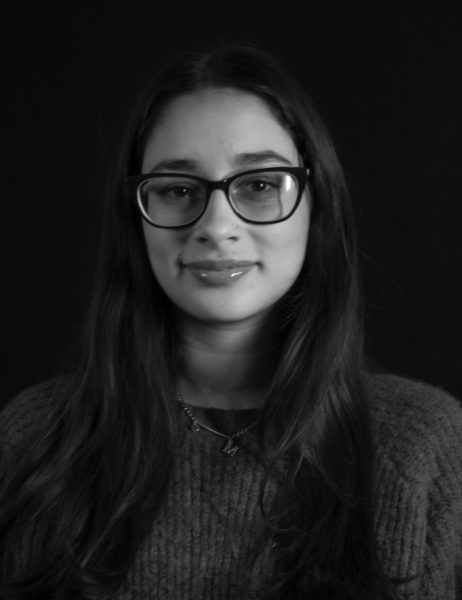Amongst Islam’s many holidays and practices, the month of Ramadan is arguably the most globally anticipated. Although the entire Muslim world rigorously prepares for this holy month, many in the West are unsure of what it really entails. Being Muslim in the U.S. does make it difficult to fully immerse oneself in Ramadan, and with the Muslim population growing, it would be helpful for more non-Muslims to familiarize themselves with the month.
The ninth month of the Muslim calendar, Ramadan is an incredibly sacred practice in which Muslims all over the world prioritize their spirituality and connection to Allah. According to Brandeis University, Islam follows the lunar calendar, which is 11 days shorter than the solar one, causing the date of Ramadan to move 11 days earlier every year. While traditionally marked by the sighting of the new moon, many now rely on predetermined astronomical calculations for its beginning and end.
During Ramadan, Muslims essentially fast from sunrise to sunset, refraining from eating, drinking and participating in sexual relations. This fast is broken by most things consumed or expelled from the mouth and nose, such as vomiting, large amounts of bleeding and orally taken medicine. The duration of a person’s fast ranges from 11 to 16 hours, depending on the Gregorian month of Ramadan.
To begin the fast, Muslims will wake up before Fajr — one of the five daily prayers that occurs before sunrise — to eat breakfast and fill their stomachs before beginning the fast. This practice of eating before Fajr has many names, such as Suhur, Sehri and Shour, and they each vary from culture to culture. Breaking one’s fast is called Iftar and is a significant celebration in Muslim communities. Many start it with a date, following the Sunnah, and then pray Maghrib, the fourth daily prayer, before sitting down for a full meal. Others may choose to eat first and pray afterward.
Once individuals reach puberty, they are obligated to fast. Certain exemptions do apply for those who are sick, traveling, pregnant, menstruating, or part of the elderly. Those who cannot fast are required to make up for missed days later in the year, or if unable to do so, they must feed someone in need for each missed day. According to the Islamic Networking Group, while children do not have to fast until puberty, it is customary for them to do so when they can alongside their families, with many children fasting half days or weekends. This not only helps them prepare for the coming years but creates a sense of inclusion among younger members of the community.
Beyond the mandatory fasting, Ramadan holds profound historical and religious significance. It is a time for spiritual renewal and self-discipline, focusing more on al-Ākhirah, the afterlife, than our Dunya, the life of this world. Muslims strive to deepen their relationship with Allah by dedicating more time than usual to acts of worship, such as reading the Quran, performing extra prayers like Taraweeh late into the night and overall learning more about Islam. Along with furthering one’s spirituality, it also encourages people to empathize with the poor. It is a period of reflection, where one aims to abstain not only from physical indulgences but sinful behavior. The month also serves as a transitional period for many Muslims by allowing them to rediscover and reinforce their faith in order to overcome any religious loss that might have occurred throughout the year.
Laylat-ul-Qadr, the Night of Power, has incredible significance as it is considered the night when the Quran was first revealed to Prophet Muhammad PBUH. According to Islamic Relief, during this time, Muslims seek to enhance their prayers and good deeds, as it will be multiplied in their reward. Because it is not exactly sure what night it falls on, Muslims will dedicate themselves to the last ten days.
Ramadan ends with a big celebration called Eid Al-Fitr, and after 30 days of fasting, prayer and reflection, it marks a successful month of gratitude, deepened spirituality and communal unity. Muslims in the community will typically gather in the morning for Eid prayer, with most people dressing in special cultural clothes to emphasize the significance of the holiday. Following the prayer, families will eat a big breakfast and exchange gifts. Eid Al-Fitr also highlights the importance of charity, and Muslims are required to give Zakat Al-Fitr, a small amount of food donated before Eid prayer. This is done to ensure that all members of the community can partake in the festivities.
Living in a Western country during such a physically impactful religious practice can be very isolating, and it helps to have some support from non-Muslim friends, whether it be through something as simple as cultural familiarity. Beyond the physical aspects, appreciating the deeper spiritual essence of this holy month not only comforts Muslims but also enriches one’s own cultural understanding. There is a running joke within the Muslim community of constantly having people exclaim, “Not even water?” when it is revealed that they are fasting, and as funny as it may be, it does eventually feel frustrating and repetitive. While it may seem like a small difference to you, it makes all the difference to simply learn a little bit about another religion.
Were you fasting for Ramadan? Let us know in the comments below.














































































